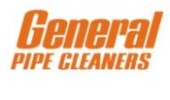
Maximizing Fleet Productivity and Profitability
November 16, 2021 | By Del Williams
Contractors who may have reduced service staff during the lean times of the pandemic are now having trouble keeping pace with the increase in business.

After homeowners and businesses hunkered down during the initial days of the pandemic, residential, commercial and industrial contractors have experienced a new problem: How will they handle the accumulated pent up demand? Home and business owners who put off maintenance and renovations as the pandemic and national economy worsened left unresolved issues ranging from HVAC, electrical, and plumbing to the full gamut of contractor trades.
As we have witnessed, once the earliest lock-down days of the pandemic passed contractors have welcomed a flood of non-emergency service calls for work customers can no longer delay.
However, contractors who may have reduced service staff during the lean times of the pandemic are now having trouble keeping pace with the increase in business.
Now contractors and specifically vehicle fleet managers who are seeking to maximize the productivity of their existing staff to meet rising demand and boost profits now have tools that can effectively facilitate this aim.
By using technology such as a real-time GPS vehicle tracking via a smartphone, tablet or PC, along with text, email, and voice directly to the driver, contracting businesses can dynamically manage their fleets and work crews to optimize dispatch and routing, while minimizing downtime.
This approach can not only reduce the cost of employee overtime, but it can also assist in optimizing vehicle operation including fuel use, wear and tear, maintenance, and premature replacement.
Doing More with Less
“Contractors have to be more efficient than ever today, and real time GPS vehicle tracking can help. With it you can see which technicians you have across the area, including who is nearest and who is experienced and properly qualified for the job. And by accessing real-time traffic data in the software, you can identify who is easiest to send to that location as well,” says Ben VanAvery, director of sales and marketing at Advanced Tracking Technologies (ATTI), a U.S.-based designer and manufacturer of GPS tracking products.
According to VanAvery, once a job is complete, it is recorded in the system, so the dispatcher, owner or fleet manager can stay apprised of who is available for the next job. In this way, it can serve as a remote time sheet, which reduces the record keeping burden and promotes productivity.
For example, one GPS vehicle tracking device system transmits 10-second updates, showing precisely where vehicles are the moment the fleet manager or dispatcher needs to know.
The system provides real-time location updates as well as speed and idle time alerts if something is amiss. This data is transmitted via satellite and cellular networks to a smartphone or PC on a 24/7 basis. The system also has access to nationwide speed limits in its database.
Fleet Optimization
Post pandemic, with such a system a contractor, fleet manager, or dispatcher via a smartphone app or PC can display the real-time location of the entire fleet on a map and zoom in on any specific vehicle. At a glance, he or she can see if a vehicle is moving (displays green) or stopped (displays red). By touching a vehicle icon, an app can display where the vehicle has been, where it stopped, and how long it has idled.
By zooming in or out on the map, the contractor can see where all the fleet’s vehicles are and quickly reallocate any to where they are most needed. This can be particularly important whenever job service emergencies arise and must be quickly accommodated.
Since this approach enables contractors to quickly route the nearest available vehicle and qualified work crew to any required service call, it helps to boost customer satisfaction while it also aids in maximizing employee work hours while at the same time optimizing vehicle usage.
Worker productivity
As demand for maintenance, repair and construction services continues to rise for contractors, real-time vehicle tracking systems can also help vehicle drivers and work crews take more responsibility for their own productivity.
To instill greater self-monitoring and efficiency, contractors and fleet managers can configure the system to automatically send real-time text or email alerts to individual drivers, groups, or the entire fleet if factors such as traffic congestion, travel route, vehicle speed, starts, stops, or idling pose a concern or deviate from policy.
To take advantage of the most efficient routing determined over time for more established accounts, emailed vehicle tracking reports can be configured to automatically summarize fleet performance on a periodic basis.
For instance, because the GPS system is automated, travel reports can be generated that analyze vital historical data, such as on-time jobsite arrivals, departures, and time on the job can also be emailed without anyone having to open software.
The reports can be customized to include as much detail as needed, such as how many stops, how long per location, top speed, mileage, idle times of the day, etc.
Identifying and implementing more efficient routing and performance, in turn, enables individual drivers and the fleet as a whole to accomplish more in less time.
Such a system can also help individual drivers to drive more safely and take greater responsibility for their own conduct without the need to micromanage. A maximum vehicle speed, of say no more than 8 km/h over the posted limit can be set and drivers informed of this. The system will then track their vehicle speed and compare this with the speed limit in its national data base, with exceptions automatically emailed to the driver and contractor in a report, if desired.
Implementing real-time GPS tracking can also increase driver accountability by making them less inclined to take unauthorized excursions, such as for personal errands, when not on a job because the system documents actual routes and stops. This can help to further minimize unnecessary vehicle mileage, fuel use, and wear and tear.
Of course, GPS tracking can also be used to recognize and reward consistently rapid employee response, which encourages greater productivity.
As HVAC and plumbing contractors hustle to meet pent up demand in building maintenance, renovation and construction, the bottom line is that today’s advanced GPS tracking systems can help to profitably meet that demand by optimizing vehicle use and work crew productivity.




